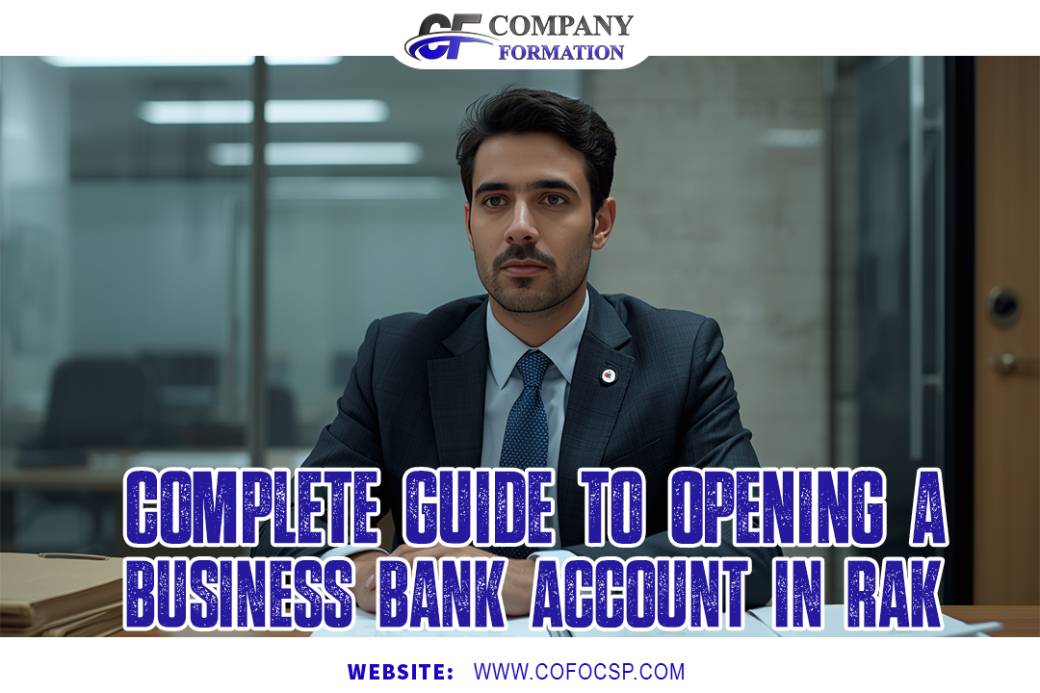How to Set Up an Education Business in Dubai, UAE | 2025 Guide to Success
If you are thinking of how to start an education business in Dubai, UAE, you have chosen the right time and place, as the city is full of possibilities with a knowledge-based economy. As you forge more and more opportunities in the GCC and Dubai, through starting a private school, EdTech startup, or higher education institution, keep in mind that the Emirate’s over 200 nationalities create an excellent market for educational services and also operate within a very supportive regional set of policies. I have been through the business setup in Dubai process, and now I’m here to walk you through each and every step with practical, well-thought-out advice. From how to get a school license in Dubai to how to capitalize on free zones such as Dubai International Academic City (DIAC), this 2025 guide has everything you need to get your school up and running: costs, regulations, trends (like AI in education). Let’s dive in!
Why Start an Education Business in Dubai, UAE?
The education market is growing in Dubai, with 12% growth in student enrolment (KHDA) and a 25% increase in international students. Too hot to touch: the UAE, with over 300,000 higher education students, representing 187 nationalities and 18 curricula, the country is a hot place to invest in education. And that is why company formation in Dubai is the right choice for your Education Business.
- Rising Demand: Demand for various educational services, including K-12 private schools to e-learning platforms, is driven by the UAE’s foreign resident population (85% of residents).
- Public Support: UAE 2071 Vision and National Agenda 2021 encourage a knowledge-based economy through PPPs, long-term lease on land, and 100% foreign ownership in free zones.
- Strategic Position: Dubai’s location near Asia, Europe, and Africa brings in foreign students and scholars.
- Innovation Hub: The UAE’s commitment to 4IR technologies (e.g., AI, VR learning) is a boon to EdTech startups; think Al-Mentor and Lamsa World.
- Ease of Set Up: It’s easier to set up in the UAE than in Singapore and Malaysia, according to studies by EY-Parthenon.
The answer lies in Dubai’s diverse market, from STEM courses to bilingual education, catering to expatriate families and local needs.
What Types of Education Businesses Can You Launch in Dubai?
Education in Dubai. Under the umbrella of Dubai-based education are a variety of institutions with unique opportunities. The following are the chief hyponyms:
- K-12 Private Schools -Provide British/ American/ International Baccalaureate School Systems to fulfill the needs of expatriate families.
- Universities: Open foreign university campuses in DIAC, offering either undergraduate or postgraduate degrees.
- Trade Schools: Offer job-focused training in occupations such as data analytics, fintech, or hospitality, for workforce development.
- EdTech Startups: Create e-learning platforms, AI in education solutions, or VR learning applications and access a market with 6% CAGR (2024–2030).
- Language and Cultural Schools: Focus on Arabic studies, bilingual instruction, or religious education to address local and expatriate demand.
- SN EDUCATION Inclusive education programmes, supported by the People of Determination (POD) department.
- Preschools and Early Childhood Centers: Serve early learners through pre-K licensing.
How to Get a School License in Dubai: Step-by-Step Process
Dubai company formation for the Education Business. Starting an education business in Dubai demands a clear outline of the Licensing steps. Here’s how to establish your education business in Dubai in 2025:
Step 1: Define Your Business and Curriculum
Select your school category (e.g., private school, training center, EdTech company) and an accredited curriculum by the KHDA or MoE, such as Cambridge International and Pearson Edexcel.
Step 2: Select a Location
Choose between mainland and free zones such as DIAC, Knowledge Village, or RAKEZ. Free zones offer 100% ownership and tax advantages, while the mainland has a wider market reach.
Step 3: Obtain Necessary Approvals
- KHDA Approval (UAE): Provide a business plan, curriculum information, and evidence of financial sustainability for either a school license in Dubai or online education in Dubai.
- MoE Attestation (UAE-wide): This type of verification is used for higher educational or technical training purposes.
- RAKEZ Approval (Ras Al Khaimah) is required for RAK-based establishments in addition to DED approvals.
- Dubai Municipality: It verifies facilities for safety and security.
Step 4: Register Your Business
Pick a culturally fitting name and open up with the Dubai Economy Department (DED) for mainland and free zone authorities for locations such as DIAC. PRO services for company setup in Dubai – A shortcut to company formation in Dubai.
Step 5: Secure an Educational License
- Get an Educational Institution License or a Training Center license in Dubai. Required documents include:
- Shareholder passports
- Application form
- Tenancy contracts
- Memorandum of Association
- Curriculum vitae and qualification certificates
- KHDA/MoE approval letter
Step 6: Build Infrastructure
Rent or build premises that comply with the safety guidelines of the KHDA. For EdTech, spend on a scalable tech stack that has strong UX design and data security.
Step 7: Hire Faculty and Staff
Hire teachers & admin staff who meet the KHDA/MoE requirements. In EdTech, recruit content experts and developers.
Step 8: Open a Corporate Bank Account
Establish a business bank account to manage money and to apply for loans.
Step 9: Launch Operations
Initiate student enrollment, marketing, and operations; ensure KHDA inspection criteria are met.
Timeline: The approval process takes 3–6 months for licensing and 6–18 months overall, depending on the business type.
KHDA Approval for a school in Dubai.
Submit a business plan, curriculum details, shareholder passports, tenancy contracts, and financial proof to KHDA. The process takes 3–6 months, followed by facility inspections.
Table: Mainland vs. Free Zone Setup Process
| Step | Mainland | Free Zones (e.g., DIAC, RAKEZ) |
| Authority | KHDA, DED | Free Zone Authority, KHDA/MoE |
| Ownership | 100% with optional local sponsor | 100% foreign ownership |
| Market Access | Nationwide | Free zone or UAE-wide |
| Setup Time | 9–18 months | 6–12 months |
| Tax Benefits | Limited | Zero corporate tax |
Internal Link: Learn more about Dubai’s education regulations to ensure compliance.
Mainland vs. Free Zone Setup Process
| Step | Mainland | Free Zones (e.g., DIAC, RAKEZ) |
| Authority | KHDA, DED | Free Zone Authority, KHDA/MoE |
| Ownership | 100% with optional local sponsor | 100% foreign ownership |
| Market Access | Nationwide | Free zone or UAE-wide |
| Setup Time | 9–18 months | 6–12 months |
| Tax Benefits | Limited | Zero corporate tax |
What Are the ( APPROX) Costs of Setting Up an Education Business?
You should know how much to invest when it comes to the education business in Dubai. The costs depend on the type of business and where it is located. Here are 2025 estimates approximately costs:
K-12 Private School:
- Licensing: AED 50,000–100,000
- Facility Lease: AED 500,000–2M annually
- Infrastructure: AED 5M–20M
- Total: AED 5.5M–22M
EdTech Startup:
- Licensing: AED 20,000–50,000
- Tech Development: AED 100,000–1M
- Office Lease: AED 100,000–500,000 annually
- Total: AED 220,000–1.5M
Higher Education Institution:
- Licensing: AED 100,000–200,000
- Facility: AED 2M–10M
- Total: AED 2.1M–10.2M
Nursery or Training Center:
- Licensing: AED 30,000–80,000
- Facility Lease: AED 200,000–1M annually
- Total: AED 230,000–2M
Cost-Saving Tips:
- Opt for free zones such as RAKEZ if you wish to pay lower licensing fees.
- Utilize business setup consultants in Dubai for faster processes.
- Utilise PPPs or government incentives to lease land.
How to Navigate Dubai’s Education Regulations?
Adhering to the education regulations in Dubai is absolutely vital if you are to operate successfully. Key requirements include:
- KHDA’s Role in Regulating: Oversee the quality of curriculum, teachers, and safety of premises for businesses in Dubai. EdTech platforms require online education licences.
- MoE Regulations: Regulate higher education and VET, authorising accreditation and approval of curricula.
- Data Privacy: The UAE Personal Data Protection Law has requirements for protecting student data through consent to process and limitations on international transfers.
- IP Protection: Registration of trademarks and patents, and copyrights with the Ministry of Economy for protecting EdTech innovations.
- Accessibility: People of Determination must have access to inclusive education, as per the National Digital Accessibility Policy demands that platforms be made accessible.
- Safety: Building permits and safety check requirements in facilities are enforced by Dubai Municipality.
An experienced training center will indeed land you in a situation where your platform is adapted to comply with data privacy laws, saving you from penalties and earning user trust.
For more information regarding the licensing process, please visit the KHDA website.
Where to Set Up: Mainland vs. Free Zones?
The location you choose will affect how you set up your business in Dubai. Here’s a breakdown:
Mainland:
- Pros: Access to the whole of the UAE market, freedom of operation.
- Cons: Need a local sponsor, more expensive.
- Best For: Schools K-12 and nurseries focusing on individual communities.
Free Zones (DIAC, Knowledge Village, RAKEZ, DTEC):
- Pros: 100 percent foreign ownership, 0 percent corporate tax, simplified licensing.
- Pros: Free zone or UAE-wide operations only.
- Ideal For: EdTech startups, university systems, or training schools.
Top Free Zones:
- Dubai International Academic City (DIAC): It is home to 27 global universities that attract higher learning.
- Knowledge Village: It houses institutes and language schools.
- RAKEZ: Affordable for K-12 schools and STEM courses in Ras Al Khaimah.
- DTEC: Upcoming centre for AI and e-learning EdTech startups.
Free Zone Benefits
| Free Zone | Key Benefits | Best For |
| DIAC | Hosts global universities, tax exemptions | Higher education |
| Knowledge Village | Streamlined licensing, training focus | Training centers |
| RAKEZ | Affordable setup, STEM focus | K-12 schools |
| DTEC | Tech-friendly, startup support | EdTech startups |
What Are the Best Curricula for Dubai Schools?
And of course, the Curriculum is a key to getting students and satisfying KHDA. Popular options include:
- British Curriculum- the most widely used, available by both Cambridge International and Pearson Edexcel.
- American Curriculum: Emphasis on flexibility, often chosen by expatriate families.
- International Baccalaureate (IB): Widely accepted, great for international students.
- Indian Education: For the large expat Indian community.
- Arabic and Bilingual Integration: Incorporates AM and IE, which is compulsory in some countries.
- STEM-Skewed Programs: Computer science, data analytics, and artificial intelligence are about as hot as it gets.
The British and IB approaches have become leaders by virtue of their international nature and their endorsement through KHDA.
How to Leverage EdTech Trends in Dubai?
The EdTech market in the UAE sees a 6% CAGR (2024-2030) due to the 4IR technologies. Key trends include:
- AI in Education: Platforms such as Alef can customize learning and increase student involvement.
- VR and AR: It’s all about the 3D virtual models to support STEM education!
- Flipped Classroom Models: Enable K-12 schools to encourage learning at their own pace.
- Blockchain for Education: Ensures safe verification of credentials and data handling.
- E-Learning Platforms: Provide personalized testing and remote learning with companies like Al-Mentor making the difference.
How to Market Your Education Business in Dubai?
Quality marketing ensures your education business shines above the competition in Dubai:
- Digital Marketing and SEO: Optimize for keywords such as “school license Dubai” and “education business setup Dubai.” Write blogs about curriculum design or student well-being.
- Media: Attract parents and educators to Instagram and LinkedIn using student success stories.
- Collaborations: Associate with KHDA initiatives or DIAC colleges, for eg: Suggestions are always appreciated. Pet sitters are the best caretakers. In case of a pet sitter, Automation manufacturing designing the service provider will have to spend time with the pets at his or her own place if the pet owner is not in town for some reason.
- Community Engagement: Organise educational activities to win over expatriate families.
- Paid Advertising: Run PPC ads with the keyword/phrase “education business opportunities UAE.”
Frequently Asked Questions About Education Business Setup
Q1: What documents are needed for a school license in Dubai?
You’ll need shareholder passports, a business plan, curriculum details, tenancy contracts, a Memorandum of Association, and qualification certificates.
Q2: How much investment is required for an education business in Dubai?
Costs range from AED 220,000 for EdTech startups to AED 22M for K-12 schools, depending on location and scale.
Q3: How long does the KHDA approval process take?
Typically 3–6 months, depending on documentation and compliance.
Q4: What are the best areas to establish an education business in Dubai?
DIAC, Knowledge Village, and DTEC are top free zones, while Business Bay and Dubai South suit mainland setups.
Q5: When is the best time to apply for a school license in Dubai?
Apply 6–12 months before your planned launch to account for approval timelines.
Ready to Launch Your Education Venture?
Dubai’s education sector offers incredible opportunities for entrepreneurs and educators to shape the future. Whether you’re launching a private school, an EdTech platform, or a training institute, navigating KHDA regulations, choosing the right location, and leveraging trends like AI in education will set you up for success. Contact a business setup experts in Dubai or visit the KHDA e-services portal to start your journey. With the right plan, your education business can thrive in Dubai’s knowledge economy!









